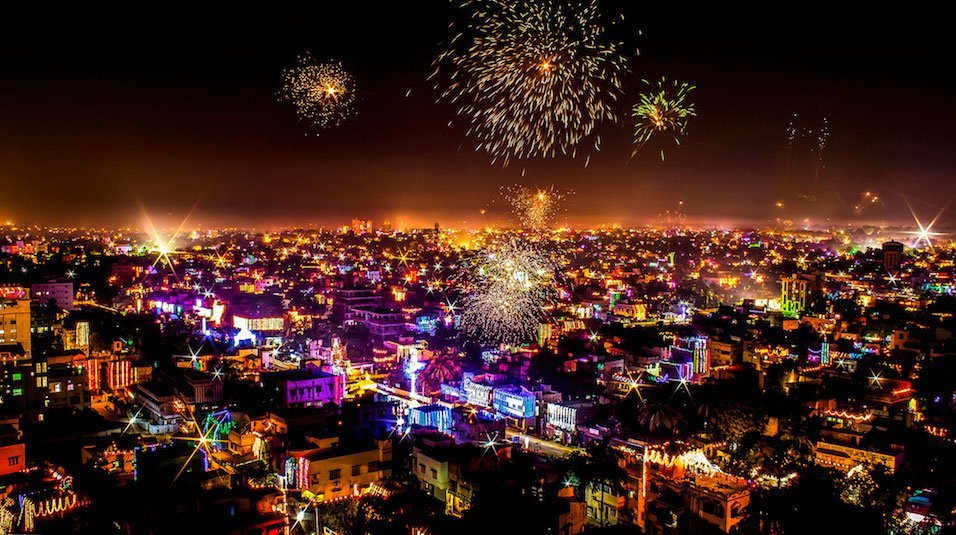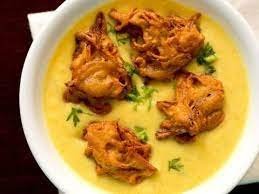Diwali 2021: Celebrating The Festival of Lights.
By Sonali Chadha
What is Diwali?
Every year, Hindus across the world come together to celebrate Diwali, the festival of lights, in October or November. The word Diwali (pronounced deh-vah-lee) originates from the Sanskrit word Deepavali which means “row of lights.” Diwali is widely celebrated in India, even amongst other religious groups such as Buddhism, Sikhism, and Jainism. Technically, Diwali is a five day celebration based around the lunar moon, but some people just celebrate it on the final day. This year, the final day of Diwali is Thursday, November 4th, 2021. The celebration of Diwali dates back several centuries, with a variety of mythological stories surrounding the origin of the holiday. The vast religious and regional diversity in India accounts for the variety of tales that circulate around Diwali. Many scholars believe that it is difficult to place the exact story that is related to Diwali, but my family tends to refer to one in particular.
As a child and grandchild of immigrants, Diwali has always held a special place in my heart. Diwali has a warmth and positivity that I find to be unique and important to my community and culture. As I have grown up through the years, I have gained more and more appreciation for my culture and the way that it has socialized and shaped me into the person I am today. I can attribute many of my core values to parts of Indian and Hindu culture that have been passed onto me from my family. It is important to me to celebrate holidays like Diwali as I learn to balance and meld my ancestral traditions with aspects of American culture.
The History Behind Diwali
The story that my grandmother recited to us as children was the story of Rama and Sita. Rama had been exiled from his home of Kingdom Ayodhya by his father, along with his wife, Sita, and brother, Lakshaman. After 14 years of exile, Rama returns to his kingdom to defeat the demon king Ravana. In order to guide Rama home to Ayodhya, the people of his kingdom lit a path of candles in the night. This is how Diwali became to be known as the festival of lights in India. Diwali is the celebration of bringing in prosperity and positivity into the new year.
Celebrating Diwali
As a child, I recall spending Diwali with my family - my four grandparents, parents, and sister. Like many Hindu families, we cleaned our house from top to bottom - much to my dismay as a child - and turned on all of the lights in our home. My mother explained to me that this would ensure that the goddess Lakshmi would visit our home and bestow health, wealth, and happiness to our family in the new year. I grew up in Chicago, so by the time Diwali came around, the sun set early in the evening, around 5 or 6. I remember thinking the house looked so bright on those evenings - it wasn’t a regular occurrence that my parents let us keep on so many lights in one night! According to my grandparents, Diwali in India is a beautiful experience because all homes are lit up to commemorate the auspicious day.
In addition to cleaning our home, my family would do a Lakshmi puja. Puja is the verb that many South Asian religions use to refer to worship. Many religions in this region, including Hinduism, are polytheistic, meaning there are multiple religious deities that people worship. For example, I have mentioned Rama, Sita, and Lakshmi in this blog post. If you were to visit a Hindu temple, you would see statues and sculptures of all three of them in addition to a multitude of other deities.
The significance of Lakshmi puja is related to cleaning your home on Diwali - to welcome in prosperity in the new year from the goddess Lakshmi. Following puja, my family would share a large meal of Indian food and exchange gifts with each other. As I described earlier, there is an immense amount of diversity in cultural practices across the region, so everyone has different food and traditions. My favorite dishes on Diwali were kaali dal (black lentils), kadhi chawal with onion pakoras (yogurt sauce simmered with spices and onion-filled chickpea flour dumpling-like pieces), and bhindi aloo (cooked okra with potatoes and spices.) My favorite dessert is jalebi, a fried flour pretzel-like structure that is coated in sugar syrup (my parents’ worst nightmare.) After we finished dinner, we would sit together on the couch, listen to music, spend time with each other, and share gifts.
Diwali in American Society
Hindus only make up about 0.5% of the population in the United States, making them a significant religious minority. This is omnipresent when it comes to Diwali and other religious holidays because most school and work calendars do not account for holidays outside of a traditional Christian calendar. Growing up, most of my peers celebrated Christmas and other western holidays with their families on days off from school. Diwali is not recognized as a federal holiday, so Hindu students do not necessarily get the day off to celebrate nor are students given an opportunity to discuss or center the holiday’s cultural traditions within the school building. The lack of recognition can negatively affect students’ feelings of belonging in a school environment. The good news? Every year, American schools are becoming more diverse and some districts have started to revisit the structure of school calendars in an effort to be more inclusive.
As I transitioned into adulthood, this was also evident in the workplace. Many workplaces do not accommodate for culturally relevant celebrations which forces people in marginalized groups to use valuable personal time in order to celebrate holidays with their loved ones. From working at Beloved, I’ve learned that this doesn’t have to be the case. Leaders can make intentional adjustments to policies and procedures so that they are more inclusive of diverse staff members. We do this by offering unlimited paid time off as one of our benefits which gives team members the flexibility they need to celebrate holidays that are meaningful to them and their families. The Harvard Business Review outlines a few other ways to support diverse staff members which include: using intentional language (flex days vs. religious days to accommodate for non-religious people), creating flex schedules for employees during holidays that require fasting, and marking off specific office spaces for folks who practice prayer during the day.
Further Readings & Reflections
Diwali: Festival of Lights | National Geographic Kids
5 Ways People Celebrate Diwali Today | Google Arts & Culture
Lesson Plan: Are School Calendars Equitable? | Learning for Justice
Are Non-Christian Employees Represented in Your Holiday Policies? | Harvard Business Review





